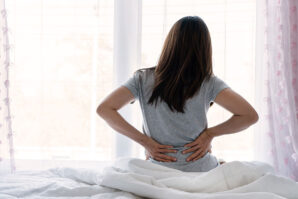Few things in life are more miserable than finding yourself out of sync with your natural circadian rhythms. Being asleep during the day and awake all night can be more than just physically demanding: it can also prove socially isolating and emotionally taxing! Yet there are people around the world who do this for days, weeks, months, and even years.
Eventually, however, the time comes to switch back.
Whether you’re finally switching from night shift to days, dealing with residual jet lag from a trip overseas, have a newborn in the house, or are emerging from a season of insomnia, enough is enough. You’re ready to get your days and nights turned back around again.
If that’s you, read on.
Reestablishing Circadian Rhythms What
Your circadian rhythm is a twenty-four-hour pattern your body follows to maintain healthy times of wake and sleep. Most of us grow up following these rhythms; they feel so natural that we rarely think about how they affect us.
But they do–big time.
A part of your hypothalamus (a portion of your brain) controls your circadian rhythm. That said, outside factors like lightness and darkness can also impact it. When it’s dark at night, your eyes send a signal to the hypothalamus that it’s time to feel tired. Your brain, in turn, sends a signal to your body to release melatonin, which makes your body tired. That’s why your circadian rhythm tends to coincide with the cycle of daytime and nighttime. (National Sleep Foundation)
Because this rhythm is coded directly into your DNA, your body generally functions best when you are able to comply with the natural circadian rhythm: sleeping during the night and being awake during the day.
Holding to this general habit doesn’t rule out the possibility of afternoon naps or the occasional late night. It does, however, argue against long periods living out of sync with the natural circadian rhythm.
Spending any significant amount of time out of sync often proves difficult.
Why
Though the circadian rhythm does help regulate sleep, it does much more than that.
Scientists have discovered that “there are clear patterns of brain wave activity, hormone production, cell regeneration and other biological activities linked to this daily cycle.” This means if you spend long periods of time with your days and nights reversed, you could see actual mental, emotional, and physiological symptoms as a result. Your skin might break out or develop dry patches; you could gain or lose significant amounts of weight; you might find yourself sliding toward depression. This list could go on.
While there will always be reasons for some people to be awake at night and asleep during the day (we need doctors, nurses, and emergency response personnel at all times, after all), this is not the ideal cycle. If at all possible, it is in your best interest to sleep at night and be awake during the day as much as possible.
Your physical, emotional, and mental health may well depend on it.
How
If you’re looking to get your days and nights turned back around, there are a few things you can try.
The first and most obvious method is simply to dive in cold turkey. Without making any concessions to your former schedule, go to bed at a reasonable time (maybe 10:00 p.m.) and set your alarm for an ambitious morning hour (let’s say 7:00 a.m.). In the morning, resist the urge to hit snooze. Get up and be active right away.
For some people, this is all that is required. They report that within a few days, their bodies have easily readjusted to the circadian rhythm. In a week or two, it’s like they’d never left it. This makes sense. After all, this is the rhythm the body naturally craves.
It doesn’t work for everyone, however. There are a few people who, for whatever reason, find that once they’re off their sleep schedule, they experience enormous difficulty getting back on track.
If you have already tried the “cold turkey” method and find yourself still struggling to sleep at night after a few days, consider borrowing ideas from treatments normally diagnosed for those with what’s termed a Delayed Sleep Phase Disorder. (This fancy-sounding diagnosis basically means these folks have trouble sleeping at appropriate times.)
For disorders such as these, doctors rarely prescribe medications. Instead, they recommend that patients try one or more of the following methods:
- Improving sleep habits. Your doctor may call this sleep hygiene. Good sleep hygiene involves maintaining a regular sleep schedule, avoiding caffeine and stimulating activities near bedtime, avoiding tobacco and alcohol, and only using your bedroom for sleeping and sex. It’s also helpful to exercise in the morning, and avoid moderate to vigorous exercise close to bedtime.
- Melatonin supplements. Doctors may prescribe a melatonin supplement to take in the early evening, to help adjust your circadian rhythm.*
- Light therapy. Having light exposure in the morning may adjust your internal sleep clock (circadian rhythm).
- Chronotherapy. In chronotherapy, doctors may prescribe you a sleep schedule that delays your bedtime by one to 2.5 hours every six days, until the desired bedtime is reached. You should maintain your sleep schedule once it is established.
*Always consult your doctor before taking any new supplement.
A Final Word
We are not doctors, of course, and can’t guarantee how these recommendations will directly affect anyone who follows them; however, things like setting regular sleep hours and avoiding tobacco and alcohol are good lifestyle suggestions in any case, regardless of how they may (or may not) affect your sleep.
Of course, if none of these suggestions prove helpful, it might be a good idea to check with your primary care physician. There could be some underlying causes for your sleeplessness that should be addressed on a professional level.
As you seek to reestablish your body’s natural circadian rhythms, make sure you are sleeping on a mattress that is comfortable and nontoxic. Visit My Green Mattress to shop the full line of safe and affordable certified organic mattresses today.









